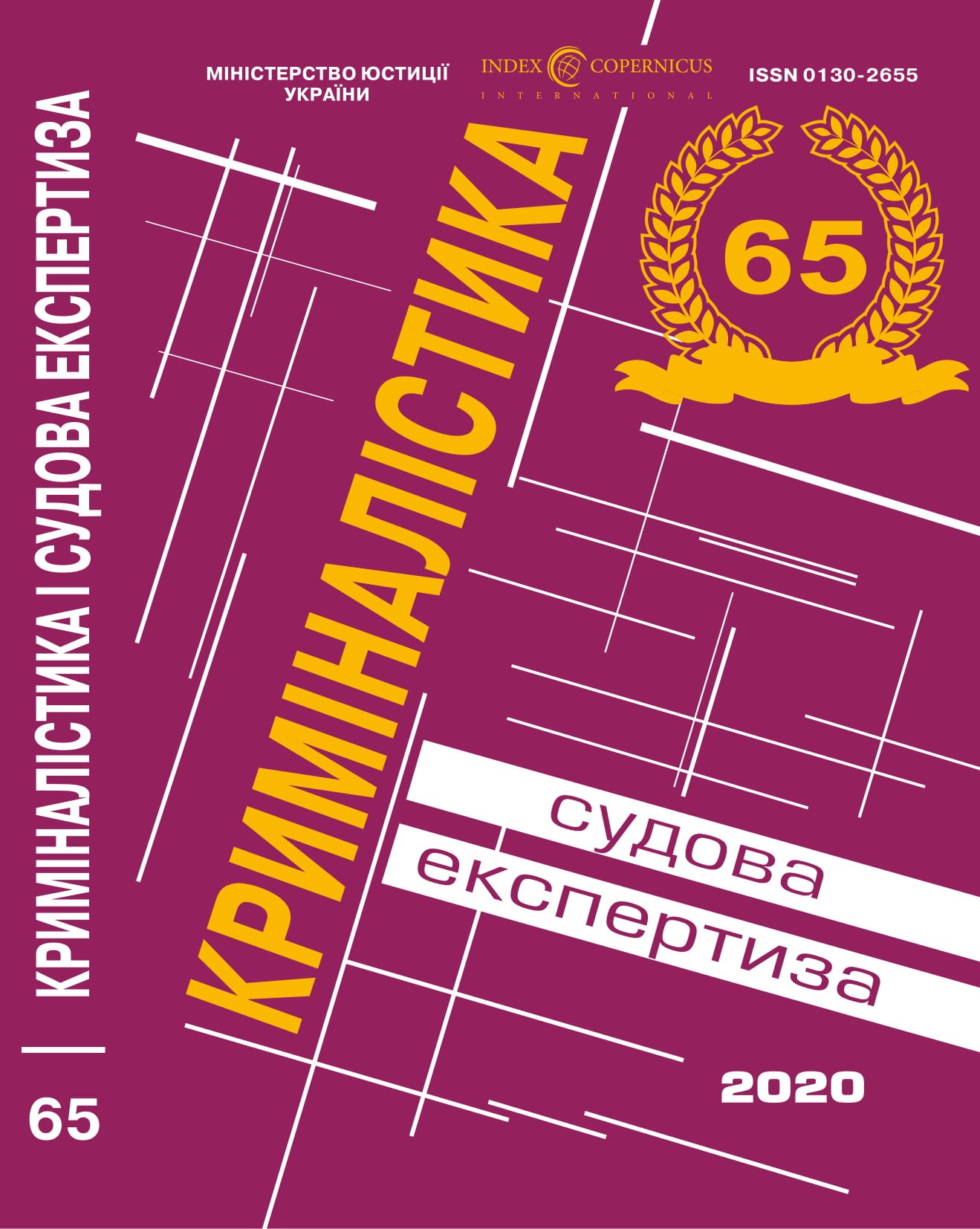
DOI: https://doi.org/10.33994/kndise.2020.65.12
O. Kravchenko, R. Zaveryko
The authors of the article on the basis of analysis of scientific sources, forensic practice and legislation considers the conceptual issue of specifying the procedure of comprehensive evaluation of expert’s conclusion in criminal proceedings. There is a distinguishing features of this procedure is the following: the first stage examines the procedural form of the expert’s conclusion, the second – its content, the factual data on the basis of which the presence or absence of facts and circumstances relevant to criminal proceedings and subject to be proved.
The criterion for assessing whether an expert’s conclusion is appropriate depends on the content of the conclusions provided to confirm or refute certain circumstances; confirmation of the reliability or inaccuracy of other evidence; the possibility or inability to use other evidence.
The condition for the admissibility of an expert’s conclusion is compliance with the procedural form for conducting the examination and drawing up a conclusion, namely: compliance with the requirements of the criminal procedural law; due process registration of the appointment of the examination (decision, determination, petitions of the parties, etc.); the procedural independence and individual responsibility of the expert for the conclusion provided by him/her; immediacy of research; objectivity and reliability of the of the conducted research and conclusion; due documentation of the results of expert’s research.
Objective reality indicates that doubts about the reliability of the expert’s conclusion will always be, however, if there are reasonable grounds for the unreliability of the expert’s conclusion, such a conclusion cannot be used in the process of proving. Consequently, there is a need for additional procedural actions aimed at obtaining data that confirm or refute the conclusion of the examination, among such actions is the appointment of a repeated examination.
The dominant role in the criterion for assessing the sufficiency of evidence in the expert’s conclusion is played by the subjective conclusion of the initiator of the expert research, his/her inner conviction, which determines a different approach to the assessment of evidence in connection with a different level of knowledge and experience.
Key words: appointment of examination, expert conclusion, assessment of expert conclusion, affiliation, admissibility, reliability, sufficiency of expert conclusion.










